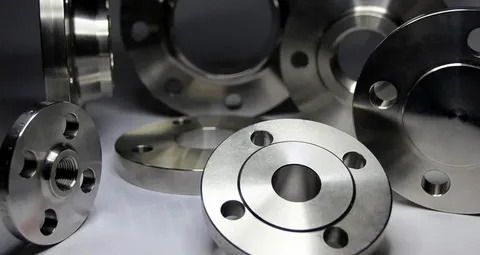Incoloy 825 flanges are vital components in various industrial applications, known for their exceptional corrosion resistance and high-temperature strength. In this comprehensive guide, we'll delve into the characteristics, applications, and advantages of Incoloy 825 flanges. Additionally, we'll compare them with Inconel 600 flanges to provide a comprehensive understanding of these two versatile materials.
Understanding Incoloy 825 Flanges
Incoloy 825 is a nickel-iron-chromium alloy with additions of molybdenum, copper, and titanium. This alloy offers superb resistance to both reducing and oxidizing acids, making it ideal for applications in harsh environments such as chemical processing, the petrochemical industry, and seawater applications.
Characteristics of Incoloy 825 Flanges
- Corrosion Resistance: Incoloy 825 exhibits excellent resistance to various corrosive environments, including sulfuric acid, phosphoric acid, and nitric acid.
- High Temperature Strength: These flanges retain their mechanical properties at elevated temperatures, making them suitable for high-temperature applications.
- Weldability: Incoloy 825 flanges can be easily welded using conventional techniques, allowing for ease of fabrication and installation.
- Durability: With proper maintenance, Incoloy 825 flanges offer long-term durability and reliability in demanding operating conditions.
Applications of Incoloy 825 Flanges
- Chemical Processing: Used in pipelines, reactors, and vessels for handling corrosive chemicals.
- Oil and Gas Industry: Employed in offshore platforms, heat exchangers, and piping systems for resistance to seawater and sour gas environments.
- Desalination plants are utilized in brine heaters, evaporators, and condensers due to resistance to chloride stress corrosion cracking.
Comparing Incoloy 825 and Inconel 600 Flanges
While both alloys offer excellent corrosion resistance and high-temperature strength, there are differences worth noting:
- Composition: Incoloy 825 contains additional elements such as copper and titanium, enhancing its corrosion resistance compared to Inconel 600 flanges.
- Temperature Range: Inconel 600 Flanges has a higher melting point than Incoloy 825, making it suitable for applications requiring higher temperatures.
- Corrosion Resistance: Incoloy 825 is more resistant to sulfuric acid and chloride stress corrosion cracking compared to IInconel 600 flanges.
Conclusion
Incoloy 825 flanges are versatile components widely used in demanding industrial applications where corrosion resistance and high-temperature strength are paramount. Whether in chemical processing, oil, and gas, or desalination plants, these flanges offer reliability and longevity in harsh environments.
By understanding the characteristics and applications of Incoloy 825 flanges and comparing them with Inconel 600, you can make informed decisions regarding material selection for your specific requirements.





Comments